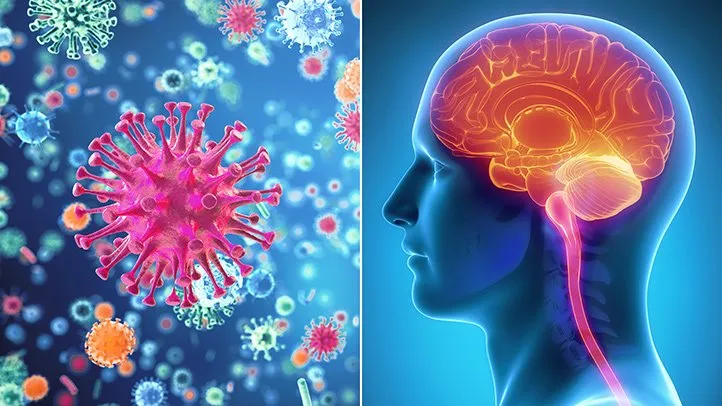What is Meningitis?
Meningitis is a serious infection causing inflammation of the meninges—the protective membranes covering the brain. Bacterial meningitis is a notifiable disease and requires urgent care.
You can ask your own question to a licensed healthcare provider here for free. It may take up to 7 days to get an answer. If you want a consultation in minutes, book now with Hope+ our premium and best health consultation service in Uganda.
Causes
The common causes include:
- Bacteria such as Streptococcus pneumoniae, Haemophilus influenzae type b (especially in young children), Neisseria meningitidis, and enteric bacilli
- Viruses like herpes simplex virus (HSV), enteroviruses, HIV, and varicella zoster virus (VZV)
- Cryptococcus neoformans, mainly in people with weakened immune systems
- Mycobacterium tuberculosis
Symptoms
- Rapid onset of high fever
- Severe headache and neck stiffness or pain
- Sensitivity to light (photophobia)
- Haemorrhagic rash (common in Neisseria meningitidis infection)
- Convulsions, confusion, altered mental state, or coma
In tuberculous or cryptococcal meningitis, symptoms may develop more slowly over several days or 1-2 weeks.
Possible Other Conditions to Consider
- Brain abscess
- Tumours or space-occupying lesions in the brain
- Drug reactions or poisoning
Investigations
- Lumbar puncture to collect cerebrospinal fluid (CSF), which may appear cloudy in bacterial meningitis and clear in viral meningitis. CSF is tested for white blood cells, protein, sugar, and specific stains for bacteria or fungi.
- Blood tests including culture and sensitivity, serology, and full blood count.
- Chest X-ray and ultrasound may be done to find possible primary infection sources.
Treatment
Because meningitis can worsen quickly, all suspected cases should be referred to hospital immediately after an initial dose of antibiotic is given.
General care includes:
- Intravenous fluids to prevent dehydration
- Control of fever
- Nutritional support, possibly through a feeding tube if needed
Empirical Antibiotic Treatment (before knowing exact cause):
- Ceftriaxone 2 g intravenously or intramuscularly every 12 hours for 10 to 14 days is usually started immediately.
- Children receive a daily dose of 100 mg/kg divided as above.
- If ceftriaxone is unavailable or not effective, chloramphenicol 1 g IV every 6 hours (IM if IV not possible) is given for up to 14 days.
- Children receive 25 mg/kg per dose.
Once the patient shows improvement, oral antibiotics can be used to complete the course.
When the specific bacteria are identified, treatment is adjusted:
- Streptococcus pneumoniae
Benzylpenicillin 3-4 million units IV or IM every 4 hours for 10-14 days (up to 21 days in severe cases).
Children receive 100,000 IU/kg per dose.
Alternatively, ceftriaxone 2 g every 12 hours. - Haemophilus influenzae
Ceftriaxone 2 g every 12 hours for 10 days.
If susceptible, treatment can switch to chloramphenicol or ampicillin as appropriate. - Neisseria meningitidis
Benzylpenicillin IV 5-6 million units every 6 hours or ceftriaxone 2 g every 12 hours for up to 14 days.
Children receive 100,000–150,000 IU/kg every 6 hours.
Chloramphenicol is an alternative if others cannot be used.
Close contacts should receive preventive antibiotics (prophylaxis) — ciprofloxacin or ceftriaxone as a single dose depending on age and pregnancy status. - Listeria monocytogenes
Common in newborns and people with weak immunity.
Benzylpenicillin 3 million units IV or IM every 4 hours or ampicillin 3 g IV every 6 hours is given for at least 3 weeks, sometimes longer.
Prevention
- Avoid overcrowding and maintain good sanitation
- Ensure proper nutrition
- Prompt treatment of respiratory infections
- Routine immunisation according to national schedules
- Mass vaccination during meningitis outbreaks


